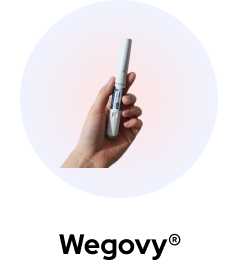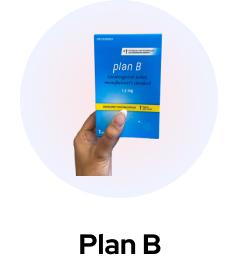If you’re taking Ozempic for weight management, or considering starting, then the first thing you’re likely wondering is how long it takes to see the effects.
While everyone is different and you’ll likely feel the changes before you physically see them, Ozempic is known for its dramatic results, thanks to its active ingredient, semaglutide.
In this article we’ll cover:
- What Ozempic is and how it works for weight loss
- How Ozempic actually works in your body
- The benefits and risks of the drug
- How quickly you may notice results
- What you need to know about weight management and maintenance
- Our guidelines for administering the drug and dosages
- Our four top tips to maximize the effectiveness of Ozempic
- Frequently asked questions.
Ready to get started? Let’s jump in!
What Is Ozempic for Weight Loss?
Ozempic is a medication produced by Novo Nordisk and is the brand name for the drug semaglutide. Semaglutide mimics the role of the glucagon-like peptide-1 (GLP-1) hormone in the body and belongs to a class of drugs called GLP-1 receptor agonists
Although initially developed to help adults with type 2 diabetes control their blood sugar, it has been found to have significant effects as a tool for weight management.
The Role of Ozempic in Weight Loss
When it comes to weight management treatment, Ozempic works in two main ways. It slows down stomach emptying, thereby reducing appetite and lowering calorie intake, and it affects the hunger receptors in the brain.
By increasing the sense of fullness and satiety, as well as delaying gastric emptying, those on the drug may be able to achieve a caloric deficit. Although Ozempic has been shown to be helpful for weight management, as in this study, total body mass loss and rate depends on individual factors, such as metabolic rate and body mass index (BMI).
Is Ozempic Health Canada Approved for Weight Loss?
Health Canada has approved Ozempic for use as a tool for weight management in patients who have a BMI of 27 or over. In some cases, in order to be eligible for treatment, you may also need to have at least one weight-related health condition.
How Ozempic Works in the Body
The active ingredient in Ozempic is semaglutide, which is a GLP-1 receptor agonist, designed to mimic the effects of the naturally occurring hormone GLP-1.
GLP-1 plays an important role in regulating blood sugar levels, and also delays gastric emptying, leading to increased satiety.
Impact on Blood Sugar Control
Ozempic was initially designed to help type-2 diabetics control their blood sugar, and it is particularly effective at the task. It stimulates the pancreas to release insulin when blood sugar levels are high, helping keep blood sugar levels stable and decrease the risk of hypoglycemia.
The delayed gastric emptying also has a positive effect on blood sugar, as it means that there is a more gradual absorption of glucose into the bloodstream. This prevents blood sugar spikes and drops which can occur after a meal.
Contribution to Improved Heart Health
Ozempic has also demonstrated benefits in cardiovascular health.
Studies have shown that patients using this drug have a lower risk of major cardiovascular events, such as heart attack and stroke, compared to a placebo group.
This is crucial since adults with type-2 diabetes or with obesity are often at an elevated risk of heart disease.
Benefits and Risks of Ozempic
While Ozempic has been shown to be effective in the fight against type-2 diabetes and obesity, it does come with some risks as well as benefits.
Understanding these can help you make an informed decision about taking this drug.
Weight Loss Benefits on Ozempic
The effects of Ozempic on weight management are considerable. Studies have shown that patients taking Ozempic lose more weight on average compared to the control group.
The top benefits include:
- Reduced appetite
Thanks to the slowed gastric emptying, people feel fuller for longer and reduce their overall calorie intake.
- Better blood sugar control
As Ozempic increases insulin release when blood sugar levels are high and reduces glucagon secretion, it allows patients to maintain stable blood sugar levels. This reduces snacking and overeating, which contributes to an overall lower calorie intake.
Is Ozempic Safe to Use?
Ozempic is generally safe to use, but as with all other medications, there can be some side effects.
It’s essential to talk to your medical team about what these side effects are. Be sure to inform them about all your health conditions and tell them what medications and supplements you’re taking, so they can ensure Ozempic is safe for you.
If you have a family history of thyroid tumors or other endocrine tumors, Ozempic may not be a safe choice for you. There is some information from animal studies that suggests Ozempic may increase the risk of thyroid tumors, including cancerous tumors.
Additionally, if you are pregnant, breastfeeding, or intending on conceiving in the next two months, discuss this with your medical team, as you may not be able to take Ozempic.
Common and Serious Side Effects of Ozempic
The most common side effects of taking Ozempic are gastrointestinal, and relate to delayed gastric emptying. These include:
- Nausea
- Vomiting
- Diarrhea
- Constipation
- Abdominal pain
- Decreased appetite
- Indigestion.
There are also some more serious side effects, which are seen less commonly. If you experience any of the serious side effects, discontinue your use of the drug and contact your medical immediately or go directly to your local ER:
- Pancreatitis (inflammation of the pancreas)
- Diabetic retinopathy complications (deterioration of eyesight)
- Kidney problems (including kidney failure)
- Gallbladder issues
- Serious allergic reactions (rashes, itching, or swelling of the face, lips, tongue, or throat, difficulty swallowing or breathing)
- Changes in heart rate (including increased heart rate).
How Fast Can You Lose Weight on Ozempic?
The rate of weight loss results when taking Ozempic can vary hugely from person to person.
Is the Weight Loss with Semaglutide Quick?
The speed of weight loss with semaglutide, the active ingredient in Ozempic, depends on individual factors such as metabolic rate and BMI. Clinical trials have demonstrated that weight loss with semaglutide is typically gradual and steady.
Factors Influencing the Speed of Weight Loss on Ozempic
Just like when you undertake a weight loss regime without Ozempic, there are a huge amount of factors that affect how quickly you lose weight. Ozempic is not a magic weight loss drug — it has an effect on your appetite.
- Dosage
Those who take higher Ozempic doses tend to have more significant weight loss.
- Diet and exercise
The bigger the calorie deficit, the more weight you will lose on Ozempic.
- Metabolic rate
The speed of weight loss depends on individual factors such as metabolic rate, which varies from person to person.
- Starting weight
Weight loss can vary depending on the person’s initial body weight.
- Other health conditions
The speed of weight loss can be impacted by the presence or absence of other diseases like diabetes.
- Concurrent medications
The rate of weight loss can be influenced by other concurrent medications.
Weight Maintenance After Ozempic Use
Weight maintenance after Ozempic use is extremely important. If you have to stop taking Ozempic, but don’t want to regain the weight, you’ll need to make sure you make permanent, ongoing changes to your diet and lifestyle so your positive weight management can be maintained.
Can Weight Be Regained After Using Semaglutide?
Yes, weight regain is possible after using semaglutide. This is especially likely if lifestyle changes such as diet and exercise changes are abandoned.
Once the medication is stopped, you’ll no longer have the benefits of a reduced appetite, so you’ll need to ensure you find other ways to maintain your weight management.
Administration and Dosage Guidelines for Ozempic
Ozempic is administered once a week as a subcutaneous injection. There are a few different factors that will affect your dosage and the length of your prescription.
Appropriate Dosage for Ozempic
The prescribed quantity of Ozempic fluctuates based on individual health conditions and how one’s body reacts to the medication.
A typical prescription schedule may resemble the following:
- Month 1
In the initial month, the typical starting dosage is usually 0.25 mg, administered once every week. This relatively low dosage allows your body to gradually adjust to the medication and allows your medical team to observe for any potential side effects.
- Month 2
Starting from the 5th week or the beginning of the 2nd month, the dose typically rises to 0.5 mg on a weekly basis. This increment is designed to enhance the regulation of your blood glucose levels while continuously evaluating your body’s tolerance to the medication.
If additional blood sugar control is required, your healthcare provider may adjust your dosage to 1 mg, or in certain cases, to a maximum of 2 mg.
- Month 3
During the third month you will continue with your long-term maintenance dose. At this stage, your medical team may continue to monitor you for any side effects to ensure you are adequately tolerating the set dosage.
- Month 4 and Beyond
Moving forward, your dosage remains consistent. Your medical team will continue to assess the effectiveness of the medication for you.
Importantly, once you’ve reached month four, your dosage of Ozempic shouldn’t continually increase. Once you’ve achieved the maintenance dose, it remains steady for the duration of your medication course, assuming no changes are needed.
How Long Should You Take Ozempic?
You can keep taking Ozempic for as long as necessary, provided you are tolerating the dosage.
Some studies have found that participants regain all the weight when they stop taking the medication, so in some cases it’s recommended patients take it long term.
Tips to Enhance Ozempic Effectiveness for Weight Loss
When you’re taking Ozempic, there are some strategies you can use to make sure you’re getting the most out of the medication.
Remember, Ozempic is just a weight loss tool — it needs to be part of a comprehensive weight management strategy that includes diet, exercise, and good sleep.
Dieting and Food Choices
Eating a healthy, balanced diet is essential when you’re on Ozempic. Choose foods that are low in sugar and high in fiber and protein, as these will help keep you satiated. It’s also essential to stay hydrated and drink plenty of water.
Because Ozempic increases your feeling of fullness, the food choices you make can have a big impact on maximizing these effects.
Importance of Physical Activity
Physical activity, both aerobic and strength-training exercises, is an essential part of any weight loss program. Exercise helps burn calories, improves insulin sensitivity, and promotes cardiovascular health.
It also helps to ensure you lose fat and retain muscle, ensuring an improved body composition. Combining regular physical activity with Ozempic can help you achieve and maintain your weight management goals more effectively.
The Role of Good Sleep
We’re only recently realizing just how important good sleep is for all aspects of health. Your weight management can be positively impacted by consistent sleep patterns, and getting a good night’s sleep will help you make good food choices.
Mental Health Matters
Stress and anxiety have been shown to impact your food choices — they can cause overeating or binge eating, which slows down your weight management progress.
Be mindful of your mental health and if you can, integrate practices like mindfulness, yoga, and meditation.
Therapy can also be extremely helpful, especially if you have underlying issues with food. Weight management is often just as much psychological as physical, so pay attention to your overall well-being and mental health!
Key Takeaways
Ozempic is a GLP-1 receptor agonist that helps with weight management by slowing gastric emptying, reducing appetite, and promoting insulin secretion. It has been approved by Health Canada for weight management in patients with a BMI of 27 or higher.
Ozempic has a number of benefits, including:
- Blood sugar control
- Improved heart health
- Lower blood pressure
- Lower cholesterol
- Weight management assistance.
You should be aware, however, that there are also a number of side effects, ranging from more common and less serious gastrointestinal distress, to rarer but more serious issues.
Your rate of body mass loss on Ozempic will depend on a number of factors, including your dosage, your lifestyle choices, and other factors. Weight regain is a possibility if you stop taking the drug, particularly if you don’t maintain your lifestyle changes.
Ozempic is not a magic weight management bullet, it’s a tool that needs to be incorporated with a comprehensive weight management strategy. This includes regular exercise, a healthy diet, and good mental health management.
Frequently Asked Questions (FAQs)
How is Ozempic different from other weight loss drugs?
Ozempic has some similarities to a lot of weight loss drugs, particularly those in the glass of GLP-1 receptor agonists, such as Wegovy, Trulicity, and Rybelsus. The main difference about Ozempic is the results — it has been shown to be particularly effective for weight management.
Is Ozempic suitable for everyone trying to lose weight?
Ozempic is not suitable for everyone. It is only designed for those who have a BMI of 27 or over, not those who just want to lose a few pounds for summer. It is also not suitable for those with type-1 diabetes, or those with a history of pancreatitis or thyroid tumors.
Can Ozempic be used in combination with other weight loss medications?
Whether Ozempic can be used alongside other weight loss or diabetes medications depends on the specific drugs in question and individual health factors.
Some medications may interact negatively with Ozempic, while others might be used in combination under close supervision. It’s crucial to consult your medical team before combining Ozempic with any other medications.













 (US)
(US)